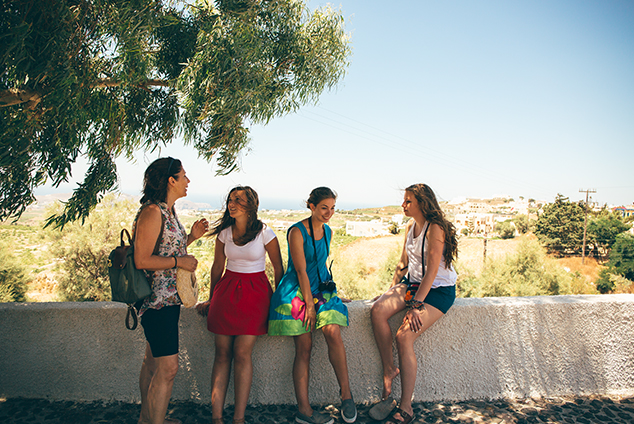
Right now, across the country, colleges and universities are hustling to prepare for the arrival of their newest students. At the same time, parents around the country are wondering whether their child has developed the independence and personal responsibility necessary to thrive on their own.
To mark the season, the New York Times recently published an article titled “How to Help a Teenager Be College-Ready.” The author, a psychologist named Mark McConville, explains that at this time of year he always hears from frantic parents worried that their recent high-school graduate is not ready for college.
It reminds me of what one mother said last year, after her daughter returned from an EF tour: “Ever since her trip she’s getting increasingly sick of my presence around the house, which is great. In a few weeks she’ll go to college and I won’t be there.”
In other words, travel helps make students college-ready.
Developing basic life skills
Keeping track of your passport, waking up on time, being punctual for meals and meet-ups, and budgeting for souvenirs – these seemingly mundane acts teach students how to take care of themselves and navigate life without their parents around.
The Times article recognizes that “Learning the nuances of administrative responsibility takes time, but is a reassuring sign that your child is up to the task of navigating day-to-day life at college.”
Teachers see it happen on every school tour. In a recent survey of thousands of our Group Leaders, ninety-five percent told us that their students grew more confident and independent while traveling.
Mike M., a teacher from Florida who took twenty-three 16- and 17-year-olds to England, France, and Spain in June, explained it well. “Most of these kids had never traveled before without their parents. They had to take more responsibility for their actions, be on time, etc.,” he said. “This is a good way to get prepared for college!”
In a perhaps surprising burst of self-awareness, the students recognize their rising maturity, too. As one of them told us recently, “Being 14 years old, my family did just about everything for me. On the tour, I had to be responsible for getting up, being on time, learning that I had choices to make while traveling and being responsible for my actions.”
A college-like experience
The college-readiness benefits of a school tour don’t stop at basic life skills like punctuality and self-organization. Every tour is, in some ways, a microcosm of college itself.
Students get exposure to a range of experiences — having a roommate, making new friends, choosing your own meals, and finding your way around an unfamiliar place – that are important for success after high school and yet unfamiliar to many graduating seniors.
Plus, universities today are the ultimate melting pots, full of students from all walks of life and all over the world. Tours let students connect with people whose backgrounds are different than their own – whether they are from another state or another continent — and develop intercultural skills that appeal to admissions officers, professors, and employers.

A vision of their future self
Being psychologically ready for college is only one part of the college-readiness equation. The other part is a bit more practical. Students have to decide what colleges to apply to, where to go, and what major to choose.
Students frequently return home certain they want to spend part of their college years in another country, and the quest for a suitable study abroad program can have a major impact on these decisions, just as surely as these decisions will influence the rest of their lives.
The cumulative effect of all these influences can be immeasurable. Or, as teacher and Group Leader Leanna W. said, “I’ve heard from every one of my students that they definitely want to study abroad in Munich once in college. They all fell in love with it. It’s so amazing to see that their lives are changing and broadening after just a week in Europe! It keeps me wanting to do these tours and have more students experience the world.”
Related articles
